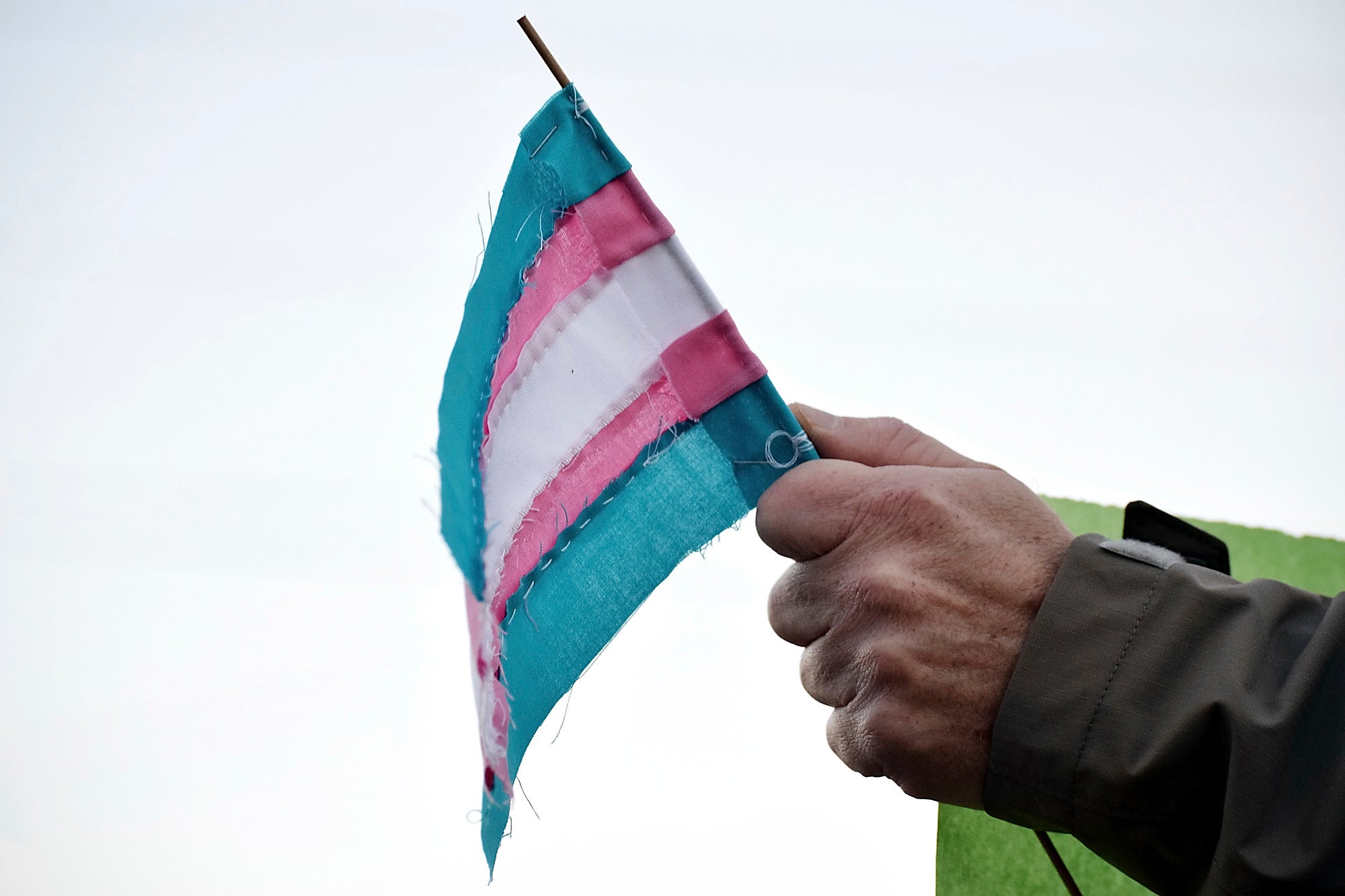What to know about Transgender Day of Remembrance and violence against trans people
Vigils and other events are being held to draw attention to transgender people who have lost their lives due to violence in the past year

Your support helps us to tell the story
From reproductive rights to climate change to Big Tech, The Independent is on the ground when the story is developing. Whether it's investigating the financials of Elon Musk's pro-Trump PAC or producing our latest documentary, 'The A Word', which shines a light on the American women fighting for reproductive rights, we know how important it is to parse out the facts from the messaging.
At such a critical moment in US history, we need reporters on the ground. Your donation allows us to keep sending journalists to speak to both sides of the story.
The Independent is trusted by Americans across the entire political spectrum. And unlike many other quality news outlets, we choose not to lock Americans out of our reporting and analysis with paywalls. We believe quality journalism should be available to everyone, paid for by those who can afford it.
Your support makes all the difference.Wednesday is Transgender Day of Remembrance, which focuses on trans people who have lost their lives because of violence. Here is what to know.
What is Transgender Day of Remembrance?
Transgender Day of Remembrance is marked every Nov. 20 and began in 1999 to honor Rita Hester, a trans woman who was killed in Massachusetts.
The day marks the end of Transgender Awareness Week, which is used to raise public knowledge about the transgender community and the issues they face.
The Williams Institute at UCLA Law estimates there are more than a million and a half transgender people in the U.S. ages 13 and older. And it says transgender people are over four times more likely than others to be victims of violence.
Candlelight vigils, memorials and other events are held to mark the day. The Human Rights Campaign also released its annual report on deaths of transgender people in conjunction with the day.
International Transgender Day of Visibility, which is designed to bring attention to transgender people, is commemorated in March.
How many transgender people have lost their lives to violence?
At least 36 transgender people have died from violence in the past 12 months since the last Day of Remembrance, the Human Rights Campaign said in its annual report. Since 2013, the organization has recorded the deaths from violence of 372 victims who were transgender and gender-expansive — which refers to someone with a more flexible range of gender identity or expression than typically associated with the binary gender system.
The number of victims is likely higher because many deaths often aren't reported or are misreported, or misgendering of the victims leads to delays in their identification.
The Human Rights Campaign said there was a slight increase from the previous year, when it identified at least 33 transgender victims of violence.
A large number of the victims tracked over the past year were young or people of color, with Black transgender women making up half of the 36 identified. The youngest victim identified was 14-year-old Pauly Likens of Pennsylvania.
Two-thirds of the fatalities involved a firearm, the organization said. Nearly a third of the victims with a known killer were killed by an intimate partner, a friend or a family member.
What is at stake politically?
This year’s remembrance follows an election where advocates say victories by President-elect Donald Trump and other Republican candidates who focused on issues like transgender athletes dealt a setback to trans people’s rights.
It also follows a wave of measures enacted in Republican states this year restricting the rights of transgender people, especially youth.
Half the states have banned gender-affirming medical care for transgender youth. The U.S. Supreme Court is set to hear arguments next month in a lawsuit challenging Tennessee's ban.
Advocates say the legislation and rhetoric is creating fewer safe spaces for transgender people, and they worry it could spur more violence against trans people.